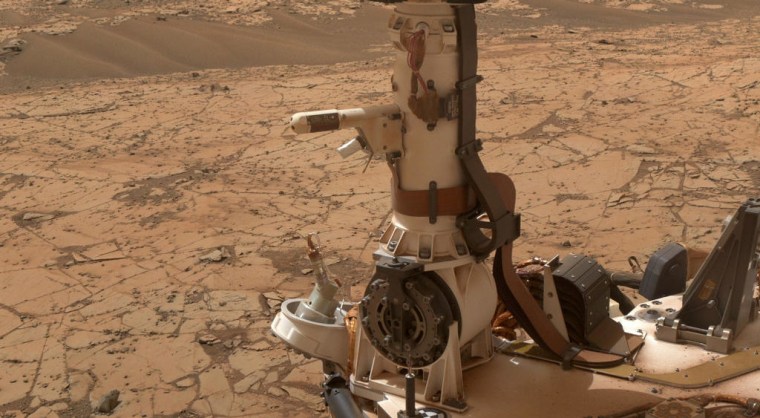Measurements taken by NASA's Curiosity rover over the last year show a distinct possibility of salty liquid water, or brine, in the Martian soil, according to climate scientists. Readings taken from the rover's Environmental Monitoring Station have tracked temperature and humidity for over a year, while other instruments examined the chemistry of soil and rock samples — giving researchers a wealth of data to pore over.
"Conditions near the surface of present-day Mars are hardly favorable for microbial life as we know it," said Javier Martin-Torres, lead author of the report published in Nature Geoscience, "but the possibility for liquid brines on Mars has wider implications for habitability and geological water-related processes."

Brine can form when water vapor in the atmosphere is absorbed into the ground, where salts can dissolve in the liquid, lowering the freezing temperature (just as with ordinary salt water) and allowing for a liquid state even in the cold, thin atmosphere of Mars.
Salts, particularly perchlorates, have been identified in the Martian soil, but while no brines have been found yet (Curiosity's location is a bit too dry), they're not out of the question. And where you find liquid water, you are more likely to find whatever life Mars may have supported.
Evidence that Mars was once a wet planet can be found in streambeds and lakes that dried up billions of years ago. But liquid water may still occur under certain conditions, and those conditions may have fostered life long afterwards — perhaps even today.
IN-DEPTH
- Top NASA Scientist: We'll Find Signs of Alien Life 'Within a Decade'
- Tiny Blobs and Tunnels in Meteorite Revive Debate Over Life on Mars
- Curiosity May Cause Evidence of Mars Life to Self-Destruct